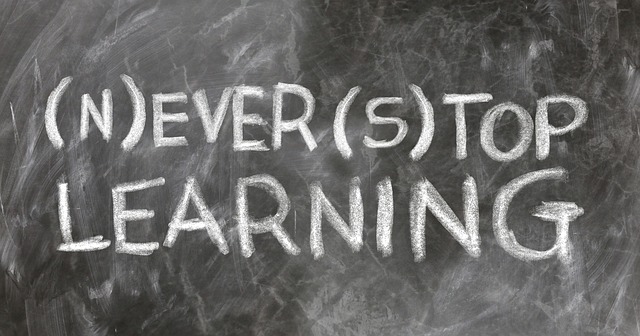Understanding the Importance of Focus
In today’s sprawling world, distractions lurk at every turn. With our phones constantly buzzing and notifications demanding attention, staying focused has transformed into a critical skill. Focus allows you to align your daily actions with your core values and goals. By concentrating on what truly matters most in your life, you pave the way toward achieving meaningful goals. This journey begins with recognizing not only what your priorities are but also why they matter to you. Understanding this significance builds the foundation required for sustained focus. When you truly grasp the ‘why’ behind your objectives, motivation to stay focused comes naturally. Taking time to reflect on your aspirations can make all the difference, guiding your choices and actions in alignment with your fundamental values.
Identifying Your Core Values
To stay focused effectively, you must first identify your core values. These values are the guiding principles that drive your decisions and behavior. By knowing what matters most to you, you can align your goals accordingly. Ask yourself: What do I cherish most in life? Is it family, health, professional growth, or creativity? Once you clarify your values, maintaining focus becomes a more manageable task. You can create a visual representation, like a vision board, to keep these values front and center in your mind. This representation reminds you of your priorities, making it harder to get sidetracked by less important tasks. Regularly revisiting how your current activities align with these core values can create a sense of accountability. This practice ignites a powerful internal motivation that fuels your journey toward achievement.
Setting Clear Goals
Having well-defined goals is crucial for staying focused on what matters most. Without clear objectives, you might end up drifting from one task to another, unsure of your direction. When setting your goals, ensure they align with your values. Use the SMART criteria—make them Specific, Measurable, Achievable, Relevant, and Time-bound. For example, instead of saying, “I want to get fit,” a SMART goal would be, “I will jog for 30 minutes three times a week for the next two months.” This clarity makes it easier to maintain your focus when challenges arise. Moreover, writing your goals down can significantly enhance your commitment. Having a tangible reference can serve as daily motivation and a reminder of your intentions. Regularly tracking your progress toward these goals can further cement your focus. Each small victory becomes a building block toward larger accomplishments, reinforcing your resolve.
Creating a Distraction-Free Environment
Your environment plays a significant role in your ability to stay focused. It’s essential to create a workspace that minimizes distractions. This may include decluttering your desk, turning off unnecessary notifications, or even finding a quiet corner where you can concentrate. Each person’s optimal environment differs; some thrive in total silence, while others prefer the gentle hum of background noise. Experiment with different setups to discover what works best for you. Additionally, consider the impact of your digital environment. Social media, endless emails, and constant connectivity can fragment your attention. Use tools and apps that limit these distractions during focused work sessions. The Pomodoro Technique, for instance, can help you maintain concentration by breaking your work into timed intervals followed by short breaks. By intentionally crafting an environment conducive to focus, you support your goal achievement dramatically.
Practicing Mindfulness and Presence
Mindfulness is a powerful practice that can significantly enhance your focus. It involves being fully present in the moment, allowing you to engage more deeply with your chosen tasks. By incorporating mindfulness techniques into your daily routine, you can mitigate wandering thoughts and distractions that plague most of us. Activities like meditation, deep-breathing exercises, or even mindful walking can help cultivate this state of awareness. Start with just a few minutes each day and gradually increase the duration as you grow more comfortable. By training your mind to focus on the present, you reduce the mental clutter that makes it difficult to achieve your goals. Engaging deeply with your work also fosters a sense of satisfaction and accomplishment, which can further motivate you to maintain your focus. Remember, focus isn’t merely the absence of distractions; it’s the full engagement of your mental faculties with the task at hand.
Establishing Routines and Schedules
Routines are another fantastic way to stay on track with what matters most. Once you establish a routine, you create a structure that supports your goals. Design your days to reflect your priorities. Start each day with a plan. Outline what you want to accomplish and how it aligns with your long-term objectives. For instance, if family time is essential to you, scheduling regular, uninterrupted evenings together can bring immense satisfaction. Similarly, if professional advancement is your focus, allocate specific time blocks for learning and skill development. Consistency breeds habit, and as you reinforce your routines, staying focused becomes almost automatic. Try to incorporate these routines in a way that includes breaks for self-care as well. Rest is essential for maintaining high productivity and for focusing effectively. By valuing your routines, you not only sustain your focus on priorities but also nurture your well-being.
Using Technology Wisely
Technology can be a double-edged sword when it comes to focus. On one hand, it provides tools that can enhance productivity; on the other, it brings a plethora of distractions. To stay focused on what matters most, it’s vital to leverage technology thoughtfully. Utilize apps that promote focus and organization. Task managers, calendar apps, and productivity trackers can be your allies in achieving your goals. Set up reminders for important commitments and deadlines. However, be cautious of the downfalls of technology. Limit your use of social media and notifications during focused work times. Consider implementing specific times during the day to check emails or messages, rather than allowing them to interrupt your workflow. By creating a mindful relationship with technology, you can use it as a tool for success rather than a source of distraction.
Reviewing and Adjusting Your Goals
Life is dynamic, and so should be your approach to goal achievement. Regularly reviewing your goals allows you to adjust them based on your experiences and changing priorities. Take time, perhaps at the end of each week or month, to assess your progress. Reflect on what you’ve accomplished and what still needs attention. This practice not only keeps you accountable but also allows you to celebrate small wins, which reinforces your focus. Additionally, be open to recalibrating your goals based on emergent circumstances. Sometimes opportunities arise that require a shift in focus. Embracing this adaptability will keep you aligned with what matters yet remains responsive to life’s natural ebb and flow. Importantly, ensure that the adjustments you make still resonate with your core values. This alignment will help you maintain motivation and commitment over the long run.
Cultivating a Supportive Network
One of the often-overlooked aspects of achieving focus is the influence of our social circles. Surrounding yourself with people who share your values and goals can boost your motivation and help you maintain your focus. Whether it’s friends, family, or a professional network, engaging with supportive individuals provides encouragement and accountability. Join groups or communities that resonate with your objectives. These may include professional associations, hobby clubs, or online forums. Engaging in conversations about your goals can enrich your perspective and introduce you to new ideas. Additionally, sharing your goals with trusted peers invites them to hold you accountable. You’re more likely to stay focused on what matters when you have others cheering you on and sharing in your journey.
Taking Care of Your Physical and Mental Health
Your ability to stay focused hinges significantly on your overall well-being. Physical health directly correlates with mental clarity and focus. Prioritize exercise, nutrition, and quality sleep. Regular physical activity boosts blood flow to the brain, enhancing cognitive functions and helping you concentrate better. Similarly, a balanced diet rich in vitamins and minerals fuels your brain, sustaining your energy levels throughout the day. Don’t overlook the importance of hydration either; adequate water intake is vital for optimal cognitive performance. Also, pay attention to your mental health. Stress and anxiety can undermine focus and productivity. Techniques such as yoga, meditation, and breathing exercises can ease stress. Schedule regular self-care time to recharge and reflect. By nurturing both your physical and mental health, you build a solid foundation that supports your goal achievement and bolsters your focus.
Embracing a Growth Mindset
Finally, embracing a growth mindset transforms your focus, especially when it comes to overcoming obstacles. A growth mindset, popularized by psychologist Carol Dweck, champions the belief that abilities and intelligence can be developed through dedication and hard work. When faced with setbacks, instead of feeling defeated, view them as opportunities for learning and growth. This perspective fosters resilience and reinforces your commitment to stay focused on your objectives. Acknowledge that the path to success is rarely linear; flexibility and adaptability ensure you remain on course despite challenges. As you cultivate a growth mindset, you’ll likely find that your passion and motivation flourish, further enhancing your focus and drive as you pursue what matters most.
FAQs
1. What are some practical ways to stay focused throughout the day?
To maintain your focus, implement time management techniques like the Pomodoro Technique, where you work in short intervals followed by breaks. Create a distraction-free workspace, set clear goals, and prioritize tasks each day.
2. How do I identify my core values?
Start by reflecting on moments that brought you joy or fulfillment. Ask yourself what is non-negotiable in your life and what principles guide your decisions. Journaling can also help clarify your thoughts on core values.
3. Can technology help improve focus?
Absolutely! Use productivity apps, task managers, and calendar reminders to organize your tasks and schedule. Just be mindful to limit distractions from social media and unnecessary notifications while working.
4. Why is mindfulness important for focus?
Mindfulness helps you stay present, reducing anxiety and distractions. Practicing mindfulness enhances your ability to concentrate, engage deeply with tasks, and improves overall mental clarity.
5. How can I ensure I’m making progress toward my goals?
Regularly review your goals and assess your progress. Celebrate small wins and be open to adjusting your goals based on new insights or changing circumstances to stay aligned with what matters most.



